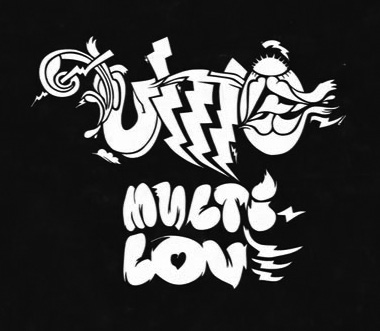By Glen Ess (Contributor) – Email
Multi-Love, the third release by Portland psych-pop band Unknown Mortal Orchestra, may just be the most magnificently eclectic record of the year. “Painstakingly made” doesn’t even begin to describe how much time and effort was put into shaping the sound of Multi-Love; from the use of handcrafted synths to the stockpiling and usage of a bevy of retro gear, frontman and producer Ruben Nielson shaped every audible hiss and pop on the record to a borderline obsessive degree. Multi-Love is a many-faceted and incredibly varied record, bouncing from a fuzzy, lo-fi pop aesthetic to a Motown-by-way- of-Queen style, all awash with crackling guitars, crunched and compressed drums, airy synths, and Nielson’s shuddering, shivering vocals buried deep behind a vocoder.
Despite the frankly obscene amounts of varied styles and genres Multi-Love dashes through, Nielson’s lyrics hover around generally the same theme — a breathlessly romantic take on an unexplored, fresh new love which acts as a central point around which the album experiments sonically. In this particular case, the relationship Nielson discusses, can be summed up as a happy new journey one that simply grows, feelings swelling till they very nearly burst, emotions swirling and colliding into even more painfully sweet combinations. Nielson, for much of the album, simply sounds at ease and at times irrationally happy with the growing pains and oddly complex nature of a relationship.
Style-wise, the album takes many of its cues from ‘70s psychedelia with a dash of disco / funk beats. Its title track and album opener, “Multi-Love,” takes the trippy, otherworldly vibe to an almost decadent degree, and is then quickly followed up by “Like Acid Rain,” which manages to sound like the auditory lovechild of Prince and Isaac Hayes. Heading into the middle portion of the album, you’re treated to the album’s stand-out track, “Can’t Keep Checking My Phone,” which is far and away the easiest song to get lost in and dance to. With clapping, spacey synths and an irresistible bass-line, the song stands out as one of the best tracks of the year. The second half of the album, while still a fantastic achievement and chock full of bright moments, doesn’t really come close to the incredibly high standard set by “Can’t Keep Checking My Phone.” The closest the back end comes to matching it is in “The World Is Crowded,” which carries with it a nostalgic sense, mimicking the traditional, old school Motown-sound, funky bass-line and all. The album comes to an end with “Puzzles,” a seven-minute track involving the sounds of cars driving by and broken glass before giving away abruptly into a soft rock ballad which just as abruptly switches gear into a rougher guitar lead track, turning from a nearly pop-rock song into ‘70’s classic rock in the style of Led Zeppelin and Phish. It’s an incredibly varied track to end an album that showcases and combines an almost dizzying array of genres.
UMO’s Multi-Love certainly stacks up well against their contemporaries, with “Multi-Love,” “Can’t Keep Checking My Phone,” and “The World Is Crowded” in particular standing out as phenomenal tracks that truly deserve a special place in everybody’s library.
Glen Ess hosts Rhythm & Rhyme on CIVL 101.7FM every Friday from 4 to 6 p.m.



